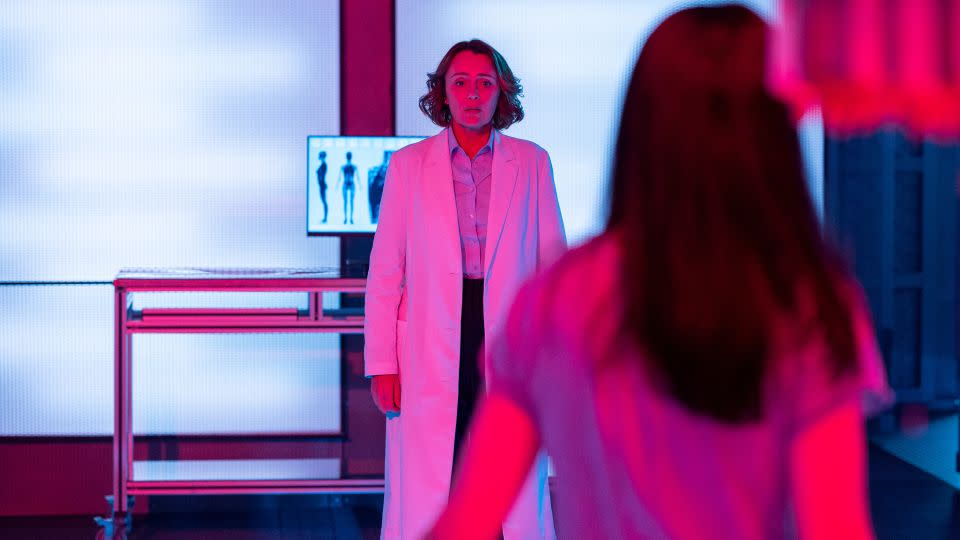‘Orphan Black: Echoes’ sends in the clones, again, while drawing from the original’s DNA
Cloning is a pretty good metaphor for one of the key methods employed to populate TV these days, but “Orphan Black: Echoes” at least tries to distinguish itself from its predecessor, which ran five seasons and provided an Emmy-winning showcase for Tatiana Maslany. Starring Krysten Ritter, the new AMC series prints out its share of twists without possessing the DNA to launch another clone army.
Adopting a somewhat tighter focus, the show is set in 2052, with Lucy (Ritter, a.k.a. Marvel’s “Jessica Jones”) fleeing a facility where she appears to have sprung fully formed from some kind of pink ooze with no memory of who she is, told only that she’s been through “a procedure.”
Flash forward, and after her escape she’s found a modicum of normalcy in the outside world with Jack (Avan Jogia) and his teenage daughter (Zariella Langford-Haughton).
Alas, secrets don’t stay buried in sci-fi dramas, and Lucy is discovered by the scientist, Dr. Kira Manning (Keeley Hawes), who “printed” her, while being pursued by operatives that compel her, as Lucy says, to “find out who I was to protect who I am.” Doing so raises plenty of questions about her past identity, who’s responsible for this elaborate (and illegal) technology and what the shadowy “they” behind it want with her.
The answers prove somewhat unexpected, including those pertaining to a teenager, Jules (Amanda Fix), also reluctantly drawn into the plot. Details dribble out gradually over the 10-episode season while providing an emotional hook that brings some welcome depth to the characters, which include the obligatory billionaire (an appropriately creepy James Hiroyuki Liao) who has championed Manning’s work but whose motives remain suspect.

As noted, while “Orphan Black” enjoyed a devoted cult following that even developed its own hashtag-anointed nickname “Clone Club,” its narrative contortions became less engaging over time, a trap that “Echoes” mostly avoids, at least coming off the assembly line.
Inevitably, though, the cloning concept has a way of diluting drama, as variations on the theme involving multiple versions of the same identity (HBO’s take on “Westworld” comes to mind) have discovered, mostly the hard way.
Created by Anna Fishko (“Fear the Walking Dead”), who produces the series along with the original’s co-creator John Fawcett, the new show does a decent job threading the needle in terms of providing a connection to its namesake while establishing a separate set of stakes and characters that stand on their own. That said, Ritter’s role isn’t as conspicuously showy as Maslany’s was, which largely defined that series.
More broadly, AMC has also found a fertile niche in genre fare, with its Anne Rice series “Interview With the Vampire,” its acquisition of “Snowpiercer” and now this show to help flesh out its still-“Walking Dead”-heavy lineup.
That’s not an unqualified endorsement of sending in the clones, but tasked with giving “Orphan Black” an updated genetic makeover, “Echoes” credibly takes on what is, however one splices it, a challenging and complicated procedure.
“Orphan Black: Echoes” premieres June 23 at 10 p.m. ET on AMC, BBC America and AMC+.
For more CNN news and newsletters create an account at CNN.com

 Yahoo News
Yahoo News 
